
Arturo the polar bear has been called the "world's saddest animal." He's locked up, alone and hot in an Argentinian zoo, and if you can look at photos of him and not feel like something is terribly, terribly wrong, then you are a lot more hardhearted than Newt Gingrich, who's among the thousands of people calling for change.
But while some people see Arturo's situation as anomalous -- an instance of particular, unusual cruelty -- an increasing number of others see zoos themselves as inherently problematic, and argue that even the best-funded, most conservation-minded institutions in which animals are kept on display should go the way of the dodo.
New York Magazine, for example, recently had an excellent piece, "The Case for the End of the Modern Zoo," making the case that "the whole animal captivity picture" has become distasteful to people in the mainstream in the last couple of years, since the documentary Blackfish exposed the horrors of Tillikum the killer whale's life at SeaWorld:
But the case against SeaWorld always seemed a little narrowly construed. If it was an abomination to keep a killer whale in a tiny cage, then why was it okay to keep a polar bear in a similarly restrictive enclosure? Sure, SeaWorld's marketing is particularly crass, but if the basic problem is that intelligent, social animals are being kept in inhumane conditions that may be driving them insane, then shouldn't that same principle apply to other species, too? It's hard to think that SeaWorld should be put out of business and not have complicated thoughts about the National Zoo. You can't just stop at the orca; you've got to consider the orangutan.
Following this logic, why stop at the orangutan? Why not also the dog, and the cow, the pig and the fish?
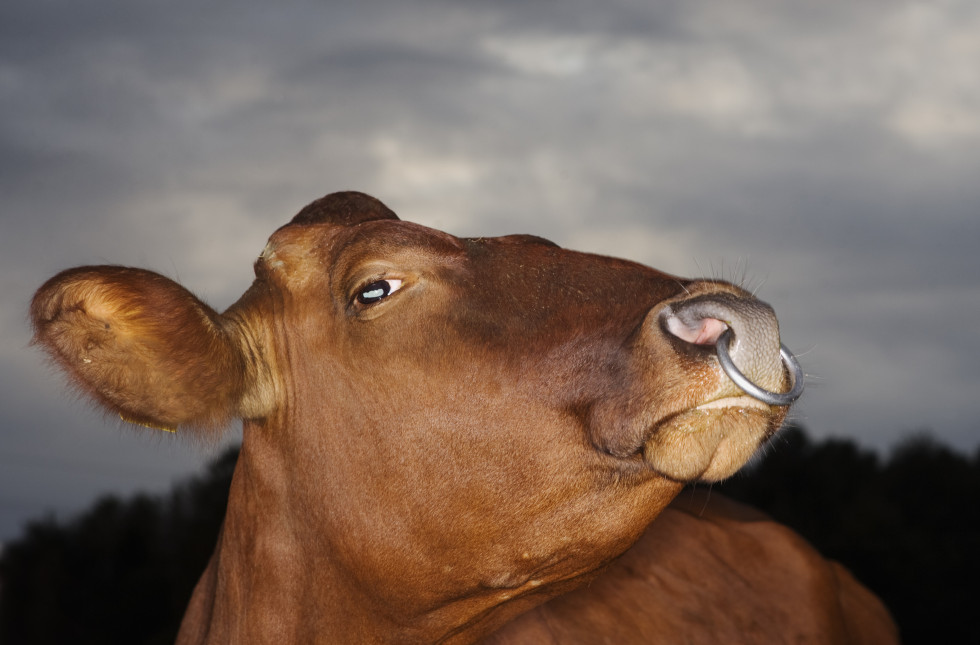
If we start from the premise that knowing more, and caring more, about animals' emotional as well as physical well-being leads to changes in the way we treat them -- the New York Magazine piece ends with the prediction that "we're pretty rapidly reaching the end of the era of the modern urban zoo" -- then where do we end? No animals in captivity whatsoever? No pets?
With my cat hovering around the computer keyboard, swatting at my fingers, and my dog snoring at my feet, I bring this question -- which, I think, is much more than academic; there are almost 70 million animals kept as pets in the United States -- to dolphin scientist and influential animal welfare advocate Lori Marino, who says that, "well, like all things, it is complex. Do we let termites chew our houses down? Do we not kill bacteria that make us sick? Do we not drive our cars because we might run over a squirrel?"
Marino -- who is a vegetarian, but has a pet cat who is not -- has been instrumental in changing the public perception of dolphin exhibits, and she's worked with the Nonhuman Rights Project, a group arguing that chimpanzees' intelligence and self-awareness means they should be thought of as more than mere property under the law, and that courts ought to order them free from captivity.
She tells me she thinks that the question of how an animal should be treated comes down to what that kind of animal is actually like. It's not that animals should never be kept in captivity, then, but that we need to be careful about which animals we keep in captivity, and how.
"Large, roaming, socially complex mammals do poorly in zoos. Small animals can thrive in zoos," she says. "It just depends upon whether you can replicate their natural habitat. But, I think, on principle, the idea of controlling someone else' life for one's profit is unappetizing."
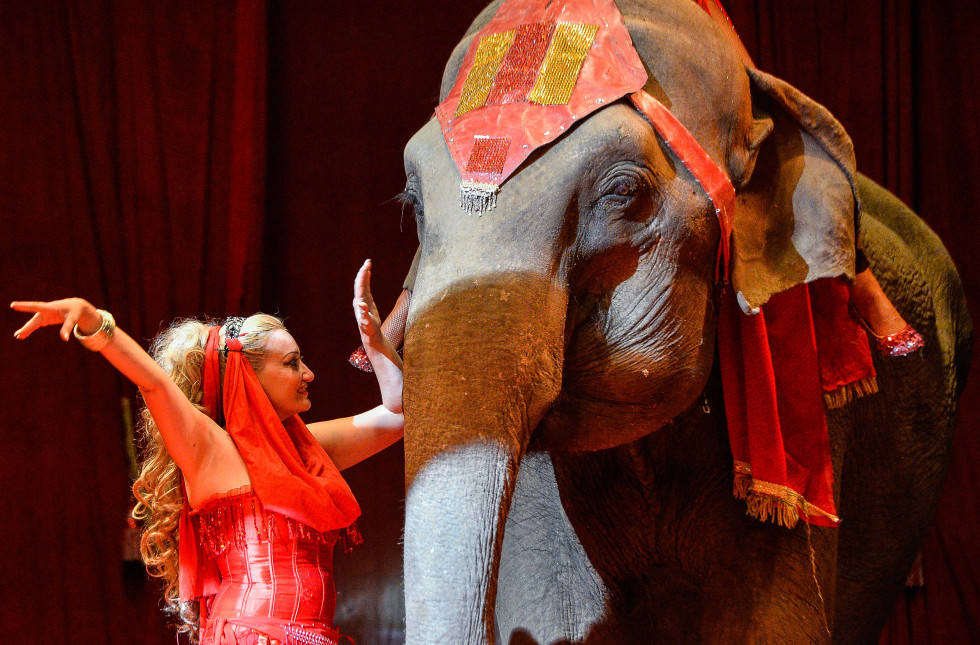 Italy's Alessia Dell'Acqua, tamer of elephants in Rony Roller's Circus, performs during the show, in a suburb of Rome on June 7, 2013, as part of their Summer Tour. Photo credit: ANDREAS SOLARO/AFP/Getty Images
Italy's Alessia Dell'Acqua, tamer of elephants in Rony Roller's Circus, performs during the show, in a suburb of Rome on June 7, 2013, as part of their Summer Tour. Photo credit: ANDREAS SOLARO/AFP/Getty Images
Georgetown University philosophy professor Bryce Huebner, who writes about animals, neuroscience and ethics, says he, too, doesn't see bright lines when thinking about where our concern for animals will take us.
"The issues are going to be different though for different animals, and the further we move away from humans, the harder it gets to say what an animal can be happy with, what if can tolerate, and what if will find insufferable," he says. "Perhaps a sardine doesn't care whether it's in open water or in a well apportioned aquarium. But an orca that's been stolen from its family, had all of social relationships destroyed, and kept in a relatively small enclosure -- for no reason besides entertaining people -- is probably miserable and depressed!"
But what about my pets? Are the cat at my keyboard and the dog dozing below suffering, by being kept as companions? (The dog certainly thinks he has it bad sometimes; but really, just when we're paying attention to the cat.)
Phew, no. Marino and Huebner both says that pets may still be acceptable, since "most animals kept as pets are domesticated and are adapted to living with humans," which is "very different from forcing a wild animal to live among humans," as Marino puts it.
"Most people think that if an animal is born in captivity then he is domesticated," she says. "No. Even a fifth generation polar bear born in a zoo is a wild animal."
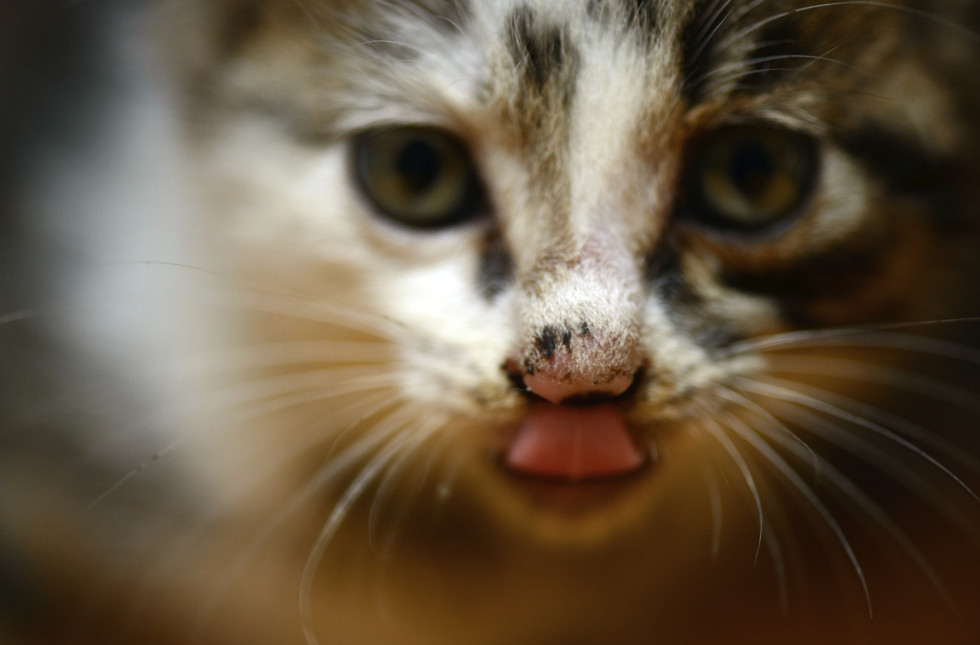
Of course the complications don't end there. The pet cat has to eat, and that cat's going to be eating meat. And lots of humans, even those who love animals very much, also enjoy a good steak.
The Humane Society estimates that about 9.1 billion farm animals are slaughtered every year in the U.S. alone. To that, the very patient Marino tells me that she thinks people who ignore factory farming now will one day have to confront that cruelty.
It seems possible -- preferable -- to make sure that the lives of these animals, before they are on the table, are better. Marino says it's even more preferable for humans to eat no meat at all.
"I don't think most people want to know about it because that would ruin their enjoyment of their meals and barbecues," Marino says. "I think that there has to come a time when we rethink our whole stance or relationship with the other animals."
"But in the case of cats, who are carnivores, I am not willing to impose that same restriction on them if it means risking their health," she says. "So, in the case of carnivores who need to eat, then the animals should be raised as humanely as possible. It is a tough one, isn't it? There really isn't a 'one size fits all' answer."
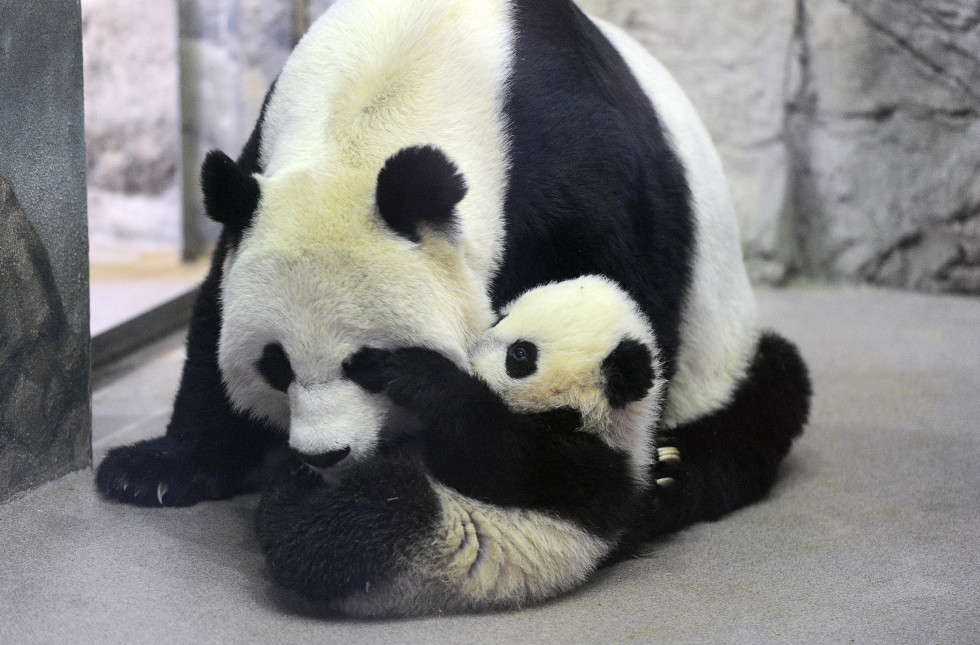
My whole life, you may not be surprised to learn, I've been obsessed with furry little beings. I became a vegetarian at age six, once I realized where burgers came from, which was fine. But even my extremely tolerant parents were not happy when I told them that the title of my bat mitzvah speech was going to be "Animals Are People, Too."
"Why," my mother beseeched at the time, "why can't you talk about how much you love your parents, like you're supposed to?"
It's about 28 years later. I'm still a vegetarian -- though I eat fish, since I spent a long time living on an island where veggie burgers were scarce; every decision is a weighing of tradeoffs, once you go down this route of caring about animal welfare without becoming a Jain -- and today, let me say thank you to my mom and dad. I love you very much!
I'm also feeling optimistic that others are coming around to thinking that, if not people, too -- and it's not like being a person is just automatically great shakes, anyway -- that animals are at least more than mere property, to do with as we will, with no regard for their experience of the world, their pleasures and their pains.
If farm animals aren't yet protected by anti-cruelty laws, and 3-4 million dogs and cats are euthanized in shelters across the country each year, and the Nonhuman Rights Project has not yet convinced a judge to grant "personhood" status to a chimpanzee, and Arturo the polar bear is counting on the likes of Newt Gingrich to help get him out of the heat for his remaining time on earth, we've also got Esther.
Esther is the pig, cuddling with the dog, up at the top of this page. She's a 500 pound house pet, who lives with a Canadian couple, and their little menagerie of dogs and cats, just outside Toronto.
The couple came to be Esther's owners accidentally -- they thought they were getting a teacup pig, then surprise! -- but their unexpected, wonderful life with this giant, affectionate, friendly girl got them wanting to do good for other animals, especially those who belong to species that people don't ordinarily think of as beings, rather than things, whose well-being does not need to be taken into account. With these animals, people don't normally calculate tradeoffs. They simply do what they want to them. But I think that might change.
Not very long ago, perfect strangers gave Esther's family more than $400,000 to start a sanctuary for animal refugees from the food industry.
$400,000! Because of this, and more -- like the people I see working to improve the lives of shelter pets, so that they can live out the lives we bred them to enjoy, and because Marino is working so hard on behalf of dolphins, and because the National Zoo's enclosures are largely so expansive that you often hear visitors complaining that they can't even see the animals -- I'm hopeful that we are at least moving toward a place where more of us see animals as beings whose lives are worthy of respect.
We might not have to close the zoos. It might be enough to open our eyes.
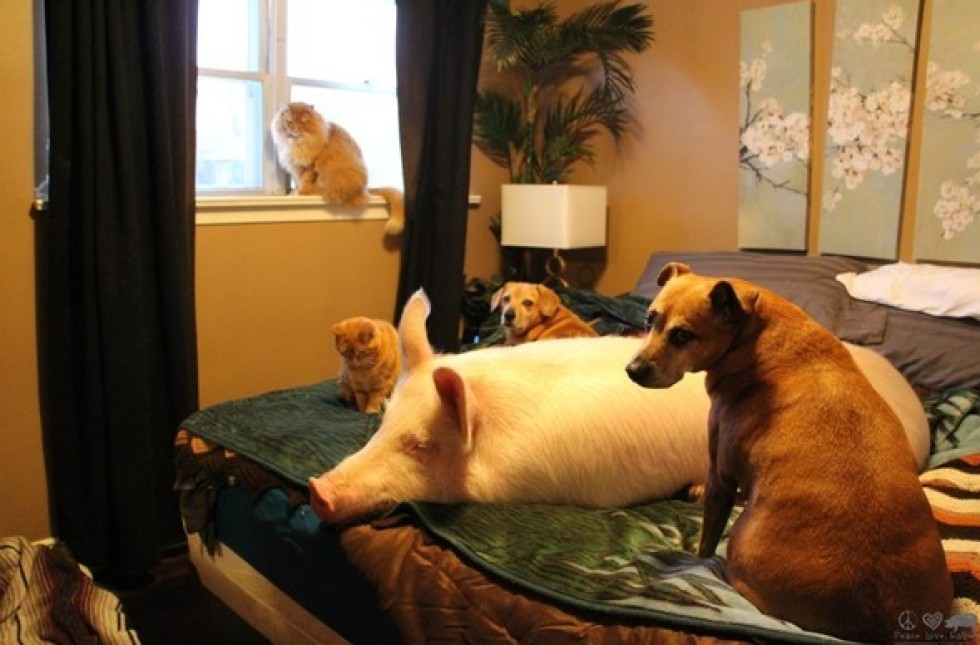
Just to bring us back full circle, I asked the National Zoo's director Dennis Kelly if he agrees that his institution would be no longer be in existence within the two and a half decades that New York Magazine predicts. He said, unsurprisingly, no, in a statement sent by email that I thought sounded very reasonable, if slightly canned:
The Smithsonian's National Zoo is celebrating our 125th anniversary this year and we fully expect future generations to celebrate the 200th anniversary and beyond. One of the most fascinating aspects of the zoo profession is that it keeps evolving. With a mission to save species and the Smithsonian commitment to understand and maintain biodiversity, our work will always be challenging and changing as technology and science advances.
He continued to say that one of "the most fascinating aspects of the zoo profession is that it keeps evolving," and that it is "hard to describe today" what the zoo will look like in decades hence, but that "we will always be committed to creating state-of-the-art facilities and exhibits that inspire visitors and continue as a leader in cutting-edge conservation science."
As for that conservation science, Kelly touted the zoo's conservation efforts with species such as "the black-footed ferret, golden lion tamarins, giant pandas, Przewalski's horses and many more."
My goodness, I love giant pandas, like the National Zoo's panda cub Bao Bao, who will be celebrating her first birthday in August. Is there anyone outside of a few cranky columnists who wouldn't be persuaded that zoos should stay open, if only to keep the otherwise rather doomed giant panda population reproducing, sometimes with the help of some rather kinky looking aids?
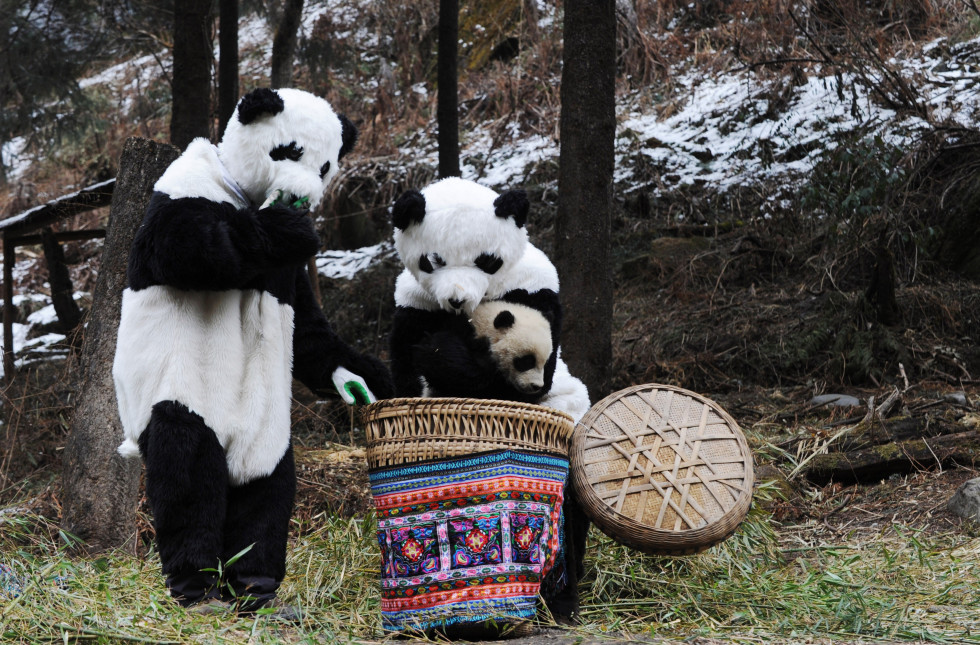
Giant panda cub Tao Tao is the first animal to be subjected to the program involving feeders who perform routine checks dressed in special costumes as pandas, to reduce human influence in the environment. Photo credit: China Photos/Getty Images
Marino says she still doesn't buy it. "That's the big argument the zoos make. They want the public to think that a natural life is so absolutely horrible that any animal would be more than happy to be in a zoo. Existence of a species only in captivity is functional extinction," she says. "We have to co me to grips with the fact that we do not have the right to see and touch everything and everyone on the planet."
This piece originally said 9.1 million, instead of billion, farm animals are slaughtered each year. Thanks to eagle-eyed reader @geekrebel for pointing out the mistake!
